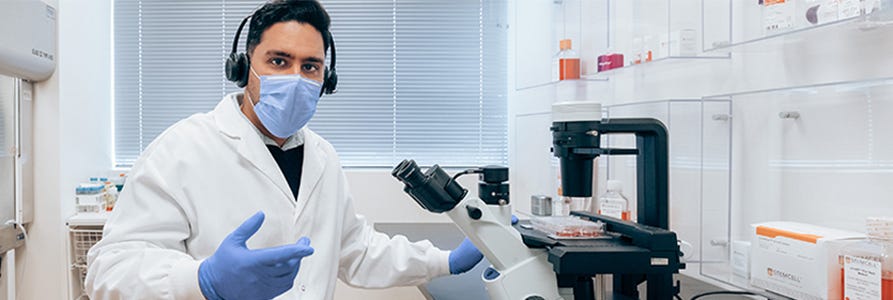Maintenance of Pluripotent Stem Cells
Human pluripotent stem cells (hPSCs) have the ability to generate all cell types in the human body and can be used in many applications in basic research and translational medicine, including disease modeling, drug screening and cell therapy. Maintenance of high quality hPSCs is dependent on consistent in vitro cell culture conditions and handling techniques.
Explore the resources below to support your hPSC research.
Survey Report: Where is Pluripotent Stem Cell Research Now?
At the beginning of 2020, STEMCELL Technologies conducted a survey asking scientists to help highlight the needs and challenges in the hPSC field and to gather ideas on how to achieve greater reproducibility. The survey report shares some of the most interesting insights, on topics such as irreproducibility and quality control, and how to address them in your research.
Read Now >Training Programs
On-Demand Online Human Pluripotent Stem Cell (hPSC) Maintenance Course
Learn the key concepts of hPSC biology, hPSC characterization, and maintenance at your own pace with this digital course. You’ll gain access to lectures, step-by-step protocol videos, and a library of curated resources.
Live Virtual Training: hPSC Maintenance and Cell Quality
Interact with trainers during livestreamed lectures and laboratory demonstrations in this 9-hour, three-day course to learn essential techniques for culturing hPSCs in a feeder-independent system. You’ll also learn how to assess hPSC lines to build a well-characterized working cell bank.
Live Virtual Training: hPSC Reprogramming
Join hPSC culture instructors for livestreamed, interactive lectures and laboratory demonstrations in this 7-hour, two-day course. You’ll learn to generate iPS cells from human fibroblasts using a non-integrating, self-replicating RNA reprogramming vector as well as fundamental strategies to expand and characterize newly derived iPS cells to bank for experiments.
Hands-On Training in hPSC Reprogramming, Maintenance, and Differentiation
Attend in-person training with foundational lectures and guided hands-on practice sessions in labs across North America and Europe. Small class sizes and rotating topics ensure that our trainers can focus on your needs.
Note on COVID-19: We are continually assessing the situation and will resume hands-on training as soon as it is safe to do so.






